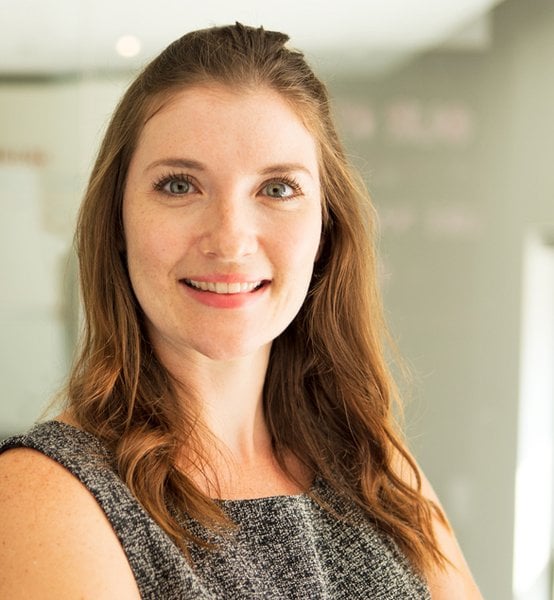
If you are not redirected within 30 seconds, please click here to continue.
Samedi: 10h – 16h HAE

If you are not redirected within 30 seconds, please click here to continue.
If you are not redirected within 30 seconds, please click here to continue.
How I Ruined My Credit Score: 3 Debt Truths You Need To Know

“You can’t be doing this.”
Those words came from the mouth of my financial advisor as we discussed my credit options. On his side of the desk, a monitor displaying my FICO score. On my side, feelings of sheepishness, frustration, and more than a little bewilderment. He was referring to my longstanding habit of paying just the minimum on my credit card bill - one I always paid dutifully on time, and, unbeknownst to me, was ripping my credit score to shreds.
I had been carrying close to my max limit for several years at that point - a balance I had wracked up in bygone days of early 20’s hijinks. Now that I was considerably more responsible (and making considerably more money), I wasn’t too worried. The debt amount in question was only a few thousand dollars - and after all, I made enough to pay it off eventually, right?
That would be a big, fat, NO. As I was about to learn, carrying an almost-maxed balance is one of the cardinal sins of credit - it’s a sign to lenders that you aren’t responsible with debt repayment. As my advisor put it, “If you had waited any longer to intervene, chances are in a few months, you wouldn’t qualify for any kind of credit at all.” Gulp. A mortgage for the home my partner and I have been saving for? Forget about it.
And so, I took action - I applied for a consolidation loan at a lower interest rate than my card, paid off the balance and closed the sucker. Now, I’m on the virtuous path of rebuilding my credit. And I’m lucky - I caught it in time, and didn’t have to leverage any assets, like my home or car, against the debt. But here’s what I wish I had known, far, far sooner.
Truth 1: Don’t Hide From Your Credit Score
While my score took a nosedive, I was oblivious - and even financially smug. I was paying my bills on time and starting to save for retirement and homeownership. However, it had been a while since I had lifted the cover on my credit score - if only I had earlier.
Your credit score consists of three digits based on your personal credit history - it’s created the first time you borrow money. The number ranges from 300 - 900, with roughly 600 being the cutoff point for most lenders. Banks and businesses use it to determine the level of risk you pose as a borrower. Here’s what it’s based on, according to the Financial Consumer Agency of Canada:
- When you opened your debt account
- The amount you owe on your debt (and yes, this includes revolving balances like credit card debt!)
- Whether you make your payments on time
- Whether you’ve ever gone over your credit limit
Your reliability with everyday bills, like TV, cable and phone are also reported to your credit bureau and impact your score. So are big commitments, like payments made on a mortgage. Generally you’ll need a score of at least 720 to qualify for a mortgage - any lower and you’ll be knocking on the door of a lender specializing in high risk buyers, for a higher than desired rate.
Checking your credit score gets a bad rap because the act of pulling the information in itself can ding it. But trust me - if any of the above behaviours sound like you, it’s high time for a check in.
Truth 2: Getting Into Debt Is Easy
The most dangerous thing about debt is how innocuously it can become a presence in your life. I had wracked up my card on silly incidentals - clothes shopping, travel plans, dinners out. I had also used it for emergencies - a cross-country flight home after being laid off three provinces away. Probably the biggest, and most stupid, abuse was walking into the Coach store and charging another $500 to my balance. With interest, that purse still costs me money every day. The irony is not lost on me.
According to BDO Canada, a national tax and financial advisory service, simple money mismanagement is enough to fall into a debt hole. Says Andre Bolduc, trustee in Bankruptcy and senior vice–president at BDO, “Tracking spending against income needs to become a habit for Canadians in order to avoid accumulating high levels of debt.”
According to Bolduc, these are the fastest ways to fall into debt:
- Failing to track spending accurately, right down to the last "nickel", and relying on credit to cover the shortfalls
- Considering your tax refund as a windfall rather than reducing the deduction at source, and using the extra cash to pay down debt
- Not having an emergency fund and using credit to cover costs
- Forgetting to account for the ‘once a year’ bills such as home insurance, and putting the payment on a credit card
- Indulging yourself or others with items you cannot afford to be buying
Guilty across the board.
Truth 3: Fixing Debt Takes Dedication
I went the consolidation route for the interest break it provides - I’ll be paying less than half of what my credit card would charge. It also gave me the opportunity to close the card. While I still use a credit card as part of my score building strategy - a low interest one designed for culprits like me - I have to be fastidious with paying it off immediately. If that approach is too disciplined, or if your credit score is too far gone, here are a few other steps you can take, according to BDO:
- Get a second job and put the income towards the debt
- Stop using your credit cards and make regular monthly payments towards the balance
- Try the snowball effect – pay down the debt with the highest interest first, then move to the next highest and so on OR if you need quicker gratification, work the opposite way just recognize the additional money you will pay on the higher interest loan(s)
- Repaying the debt on your own by creating a plan and sticking to it
- Contacting your lenders to work out an affordable repayment schedule
- Seeking the advice of a qualified professional to guide you through bankruptcy, consumer proposal, etc.
- Borrowing from family at a reduced interest rate. However, use this “life line” with caution by setting up a mutually agreeable repayment schedule that preserves the relationship.
BDO adds that consolidation is a good option if the rate is lower than the average of all your loans, and you earn enough, or hold enough equity, to cover the total debt. Bankruptcy is an option for extreme cases - if you’ve exhausted all borrowing opportunities from friends and family, taken on more employment, sold your assets, or cannot acquire a loan.
Get money-saving tips in your inbox.
Stay on top of personal finance tips from our money experts!










